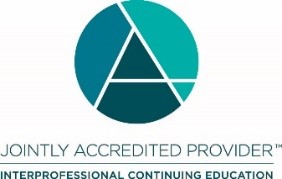ASPEN's education programs and resources are designed to support interdisciplinary health care professionals seeking to assess, augment, or confirm their knowledge of clinical nutrition and nutrition support both in clinical practice and research settings. Many of these programs offer continuing education (CE) credit for physicians, dietitians, nurses, and pharmacists.
Programs Offering CE Credit
How to Claim CE Credit – Live Programs, Journal CE, On Demand CE, Book CE
To Claim CE Credit
- Log into the ASPEN eLearning Center at https://nutritioncare.org/elearning.
(Your login is the same email and password you use for the main ASPEN website). - Click on the "My Account" button at the
top right of the screen.
- Select the appropriate activity type from the dropdown
menu.
- Live Events (i.e. conferences, live webinars, fundamentals
course, etc.)
- My Publications (journal CE offerings)
- Archived Content (on demand offerings)
- Navigate the prompts to access the specific activity and get
to the CE Information.
- Depending on the activity type, you will select
“Evaluations” or “Take Test” to complete the evaluations and claim credit.
- After completing any required post-tests
and evaluations, documentation of earned credit will be available in “My
Account” and “CE Transcript”.
How to Claim CE Credit – ASPEN Self-Assessment Program
To Claim CE Credit
- Log into the Self-Assessment Program at https://selfassessment.nutritioncare.org
(Your login in the same email and password you use for the main ASPEN website). - Select “My Courses” from the left menu.
- Proceed to complete any number of modules in their entirety.
- Upon successful module completion, follow the prompts to complete the
evaluation and claim credit.
- Credit is claimed on an individual module basis.
- Access transcripts by selecting “Transcript” from the left menu.
General Accreditation Information
 In support of improving patient care, the American Society for Parenteral and Enteral Nutrition (ASPEN) is jointly accredited by the Accreditation Council for Continuing Medical Education (ACCME), the Accreditation Council for Pharmacy Education (ACPE), and the American Nurses Credentialing Center (ANCC), to provide continuing education for the healthcare team.
In support of improving patient care, the American Society for Parenteral and Enteral Nutrition (ASPEN) is jointly accredited by the Accreditation Council for Continuing Medical Education (ACCME), the Accreditation Council for Pharmacy Education (ACPE), and the American Nurses Credentialing Center (ANCC), to provide continuing education for the healthcare team.
As a jointly accredited provider, ASPEN provides continuing education credits to dietitians, nurses, pharmacists, and physicians.
ASPEN's continuing education programs also offer AMA PRA Category 1™ Credits.

Pharmacist CPE Monitor
CPE Monitor® is a national, collaborative effort by ACPE and the National Association of Boards of Pharmacy (NABP) to provide an electronic system for pharmacists and pharmacy technicians to track their completed continuing pharmacy education (CPE) credits. It offers state boards of pharmacy the opportunity to electronically authenticate the CPE units completed by their licensees, rather than requiring pharmacists and technicians to submit their proof of completion statements upon request or for random audits.
Procedures for Compliance with the CPE Monitor®
- The NABP e-profile is completed by the pharmacist and/or technician via the NABP website. The pharmacist and/or technician will give the NABP e-PID number to ASPEN when registering and/or completing a CPE activity.
- Pharmacists claiming credit with ASPEN can provide their NABP e-PID and birthday (MMDD) each time credit is claimed for an education program. Pharmacists are also encouraged to add this information to their personal profile with ASPEN by logging in to the ASPEN website then clicking your name in the upper right corner to access the "Edit my Profile" option.
- It is the responsibility of the pharmacist to obtain and submit the correct NABP e-PID and birthday (MMDD) to ASPEN. The provider’s responsibility is to provide the information they have received to ACPE in electronic format.
- The pharmacist will also be responsible to assure that the information in their NABP profile is accurate; much like one checks their credit card bills or bank statements online to verify proper records. Pharmacists are encouraged to monitor their NABP profile regularly as discrepancies that are identified shortly after an activity may be able to be resolved. Those that are beyond the 60-day window for reporting may not be resolved.
- ASPEN has set deadlines for the claiming of CE credit on all activities. These deadlines are in place to ensure reporting to the CPE Monitor® is completed per the required timeframe of 60 days after the activity takes place. These deadlines are not flexible. ASPEN reports pharmacists earned credit to the CPE monitor monthly, usually by the 10th day of the month.
Should a pharmacist not claim credit by the set deadline and subsequently, the information is not reported into the CPE Monitor® within the required 60 days, the credit will not appear in the pharmacist’s NABP profile.
It is possible that the ACPE may permit an override for ASPEN to upload credit claimed to the CPE Monitor® after the deadline, however, ACPE sets the rules on the timing of overrides and whether an override request is granted. Override requests greater than 6 months from the activity date will not be granted by ACPE.
ACPE also assesses a $200 fee per override request that is granted. Because it is the responsibility of the pharmacist to claim credit per the posted deadlines to allow ASPEN to submit credit to the CPE Monitor® in a timely manner, ASPEN will require the pharmacist to pay ASPEN this $200 fee prior to ASPEN submitting an override request to upload the credit that was claimed late. Override requests greater than 6 months from the activity date will not be granted by ACPE.